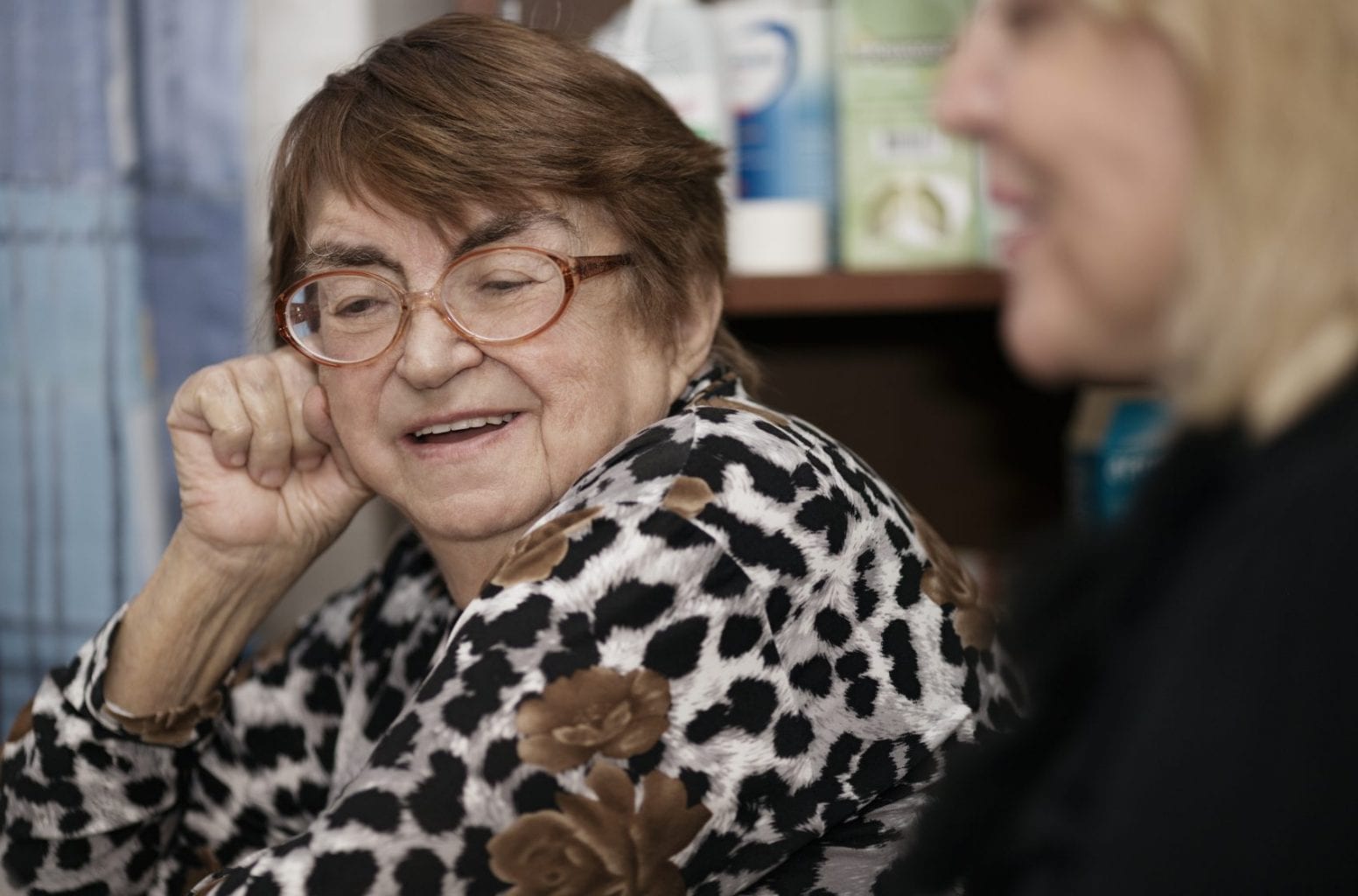If you are beginning the process of admitting or considering admitting yourself or a loved one for home health care or hospice services, you may feel like you are a diving into a world of unfamiliar terms and medical jargon that end up leaving you with more questions than when you started! With Aspire Home Health & Hospice, we want to guide you through the phases of this new journey and offer as much information as possible without making you feel overwhelmed. Over the years, we have educated thousands of people just like you who wish to learn more about the benefits, services, and questions associated with home health and hospice. Our blog below answers several questions you may have, such as the difference between home health and hospice, what a typical first visit looks like for each service, what services are offered, and what benefits can be received.
Home health and hospice have several things in common. For starters, home health and hospice both bring skilled health care professionals to provide health care directly into a patient’s home. A patient’s ‘home’ can be wherever the patient considers home—a residential dwelling, an assisted living, or even sometimes skilled nursing facilities. Both services can often be provided at absolutely no cost to the consumer as Medicare and insurance plans front the cost. That being said, there are very significant differences between home health and hospice.
The biggest difference.
Perhaps the biggest difference between home health and hospice is the underlying philosophy behind the programs. For example, the underlying philosophy of home health is that of curative services. Home health provides services that are designed to rehabilitate the patient to their highest ability to care for themselves. Patients are taught how to understand their current medical condition and be as independent as they can be in their own home. Physical therapists implement strengthening exercises or how to transfer to help prevent further injury from falls. Occupational therapists educate how to adapt in groom and bathing for independence. These services are intermittent, are usually daily, and have goals to be reached for discharge. The home health services are delivered by a team who is constantly collaborating with each other and the patient’s physician for the best quality outcomes.
The hospice philosophy.
On the other side, the hospice philosophy is to improve the quality of life of a patient who is terminally ill. The care provided is meant to manage the terminal illness symptoms and mitigate the pain the illness may be causing the patient. Hospice patients have been given a prognosis of 6 months or less to live, thus transitioning their method of treatment from a curative approach to a comfort approach. While this might sound scary at first, hospice is truly a gift and everyone should have the opportunity to experience it fully. Often, people are in denial about the seriousness of the condition and get on hospice too late to truly benefit from the experience. Once a patient learns they are terminally ill, ideally they will be admitted as soon as possible to a hospice agency so the patient can maximize the rest of the time they have left. All the care is overseen by a physician and is orchestrated by an interdisciplinary team which includes the physician, nurses, social workers, chaplains, and other professionals as the care dictates. All the medications related to the terminal condition are provided by the hospice along with medical equipment, briefs, oxygen, and other items required to care for the individual. Some hospices, like Aspire Home Health and Hospice, provide alternative therapies to help manage pain and increase a patient’s quality of life like music or massage therapy.
What services are provided for home health patients and hospice patients?
Home health services:
There are many services available to home health patients, and they are all covered 100% by Traditional Medicare and several other insurance providers (so no cost to you!). The purpose of home health care is to help you regain your independence and to get you back on your feet, so all of the cares we provide are catered towards that overarching focus. Not every patient chooses to receive all the services ordered by their physician, but they are available to help our patients heal at a more accelerated rate than they would have been able to without.
Below is a list of the home health services we provide to our patients here at Aspire Home Health and Hospice:
- Skilled Nursing—Our exceptional nurses come to your place of residence—whether it be a assisted living facility or in your home—to provide skilled nursing services. Nursing services can entail a wide range of services from pain management to wound care. We also recently introduced a holistic nurse to our team expanding our available resources.
- Physical Therapy—As we stated previously, home health is meant to help you get your independence back, and physical therapy is a huge part of that. A physical therapist provides exercises and activities that can help an individual gain strength and balance.
- Occupational Therapy—An occupational therapist’s goal is to help their patients maintain meaningful activities that are important to their lives. In home health, an occupational therapist is to assist with functioning in specifically bathing and grooming. Occupational therapy may involve instructions or assistance on how to safely perform certain activities.
- Speech Therapy—This service is designed to assist patients facing swallowing and communication disorders. Speech therapy can be a very life changing service for individuals who have difficulties speaking and eating.
- Certified Nursing Assistant—Under the direction of our nurses, our certified nursing assistants are available to visit you and provide aide services which may include bathing or grooming. Aides are also available to assist you with additional services which can encompass light house cleaning and cooking.
- Social Work—Many of our patients spend time evaluating the life they lived and what emotions they may still be holding onto. Social work is provided to patients to help face these feelings and provide a safe space to discuss openly and hopefully reduce any lingering emotional pain. Social workers are also trained in helping individuals find additional community resources.
All these services are provided 100% by Traditional Medicare and many other insurance plans. Give Aspire Home Health a call and one of our senior health advocates will be happy to provide guidance to you on the matter.
Hospice services:
Within the hospice plan of care are several services that are offered which can substantially increase the quality of end-of-life care. The patient has total control of whether or not they would like to utilize any of the available services. Some of these services include:
- Physician—All hospice patients receive care overseen by a practicing physician. As the patient, you are able to choose if you want to use your primary physician or one of our physicians. These physicians are meant to oversee and personally direct the coordination of your care.
- Skilled Nursing—Our exceptional nurses come to your place of residence—whether it be a facility or in your home—to provide skilled nursing services. Nursing services can entail a wide range of services from pain management to wound care. We also recently introduced a holistic nurse to our team should you desire this type of nursing.
- Certified Nursing Assistant—Under the direction of our nurses, our Certified Nursing Assistants are available to visit you and provide aide services which may include bathing or grooming. If you need more assistance then our aides can provide, aide services may be supplemented by private pay companies should you choose to pay for those services.
- Chaplain—While receiving end-of-life care, many patients spend time pondering on a life after. Meant to provide spiritual guidance during these times, chaplain services are available to all hospice patients regardless of religious orientation. If you do not wish to receive chaplain services, you are not obligated to do so.
- Social Work—Similar to chaplain work, many people facing end-of-life situations spend time evaluating the life they lived and what emotions they may still be holding on it. Social work is provided to hospice patients to help face these feelings and provide a safe space to discuss openly and hopefully reduce any lingering emotional pain. After the patient has passed away, social work continues working with families to help alleviate the grieving process.
- Volunteer—A volunteer coordinator works to find volunteers who are willing to spend time with hospice patients. This service is provided to help enrich the life of our patients and ensure they are not lonely during these difficult times.
These services are the core services paid for by Medicare and provided by hospice agencies. However, our services do not stop there. Aspire Hospice is dedicated to the hospice healing process and for this purpose, provides additional services for free:
- Massage Therapy—Who doesn’t love a great massage? We provide a massage therapist to come into your home and provide services. Massage therapy is known for its holistic healing remedies. Aspire considers this service essential in the hospice healing process.
- Music Therapy—Music therapy is an evidence-based, clinical use of music interventions and is one of the most requested services at Aspire Hospice. Often, this therapy is used to help the patient with social interaction, anxiety and depression relief, life review, relaxation interventions, and pain management.
What does a first visit look like for home health or hospice?
A first visit with Aspire Hospice:
Improving the quality of life is a phrase that changes person to person—what matters to one person may not to another. That is why Aspire Home Health & Hospice nurses begin hospice services by coming into their home and having a conversation with the patient on what matters most to them and then building a plan of care supporting those aspects of the patient’s life. After a qualified physician has recommended hospice, the patient or family are able to choose a hospice provider to receive those services from. Medicare and many other insurance providers cover the cost of hospice 100%, so the financial situation of the family does not need to be the deciding factor of whether the patient gets the valuable care they need.

A first visit with Aspire Home Health:
In order to qualify for these home health benefits under Medicare, the following five requirements must be met:
- You are homebound. To be homebound means that you have trouble leaving your home without assistance because of an illness or injury.
- Your doctor orders you to receive home health services (nursing or therapeutic services).
- A qualified physician must document that they’ve had a face-to-face encounter with you in regard to your current need for home health care recently.
- You must be under the care of a doctor responsible for your plan of care and who is regularly reviewing the plan of care.
- The home health agency that will be caring for you is approved by Medicare (for example, Aspire Home Health and Hospice).
As long as you have a skilled healthcare need that qualifies you for home health care, Medicare and many other insurance providers will cover 100% of the cost for your services.
Does hospice mean end of life?
Many people think of the terms hospice and end of life interchangeably. Because of this vocabulary association, many people inadvertently believe that receiving hospice results in meeting the end of life. This is absolutely not the case.
Although hospice is not meant to lengthen life, studies done by numerous research centers have shown that hospice often tends to do so. For example, Kate Rowland, MD of the University of Chicago’s department of family medicine, preformed a study of hospice care and found “patients with lung cancer . . . live longer when they receive palliative care services soon after diagnosis.” (Rowland, Palliative care: Earlier is better, 2010) For some, this may seem counter intuitive. So how is this possible?
Often, potential hospice patients have been dealing with large amounts of physical and emotional pain all on their own. Then, when these patients are put on hospice care, they are given a plethora of services designed to mitigate their pain. This added physical, emotional, and spiritual support is intended to improve the quality of a hospice patient’s life, provide enrichment, and give comfort so that they can live the rest of their days peacefully.
Although it is true that a person must have a medical prognosis of six months or less to live before they qualify for hospice, hospice is not the causative factor in death. The patient’s terminal illness is what results in death. Hospice is simply there to support them through that transition.
What are the benefits of hospice care and home health care?
For Aspire Hospice patients:
Hospice patients have a personal care plan.
When individuals enter hospice, many different medical professionals will come together and develop a personalized plan that offers the most comfort to the patient as possible and helps increase their quality of life. These plans are based upon the patient’s wishes and will also offer guidance on any decisions that occur along the way. Registered nurses, physicians, caregivers, spiritual leaders, and volunteers will assist you every step of the way with everything that comes with hospice. These benefits can reach well beyond the physical needs of a patient and extend into their spiritual and psychosocial needs, even taking care of needs for the family.
Hospice patients have the freedom to choose.
One misconception about hospice is that the patient no longer has requests available to them. In reality, the hospice patient is still the ultimate decision maker on any matters. Using a hospice service allows the patient and family members to have their voices heard and stay in command of treatments and care options.
Hospice patients have fewer hospital visits.
Many studies have shown that hospice is proven to reduce the number of hospitalizations when a patient enters hospice care. According to a report published in Jama Internal Medicine, hospice patients have lower healthcare expenditures in their last year of life compared to non-hospice patients. Similarly, hospice patients are five times more likely to pass away in the comfort of their home compared to their non-hospice counterparts. A key component of hospice care is enrolling at the right time to maximize the quality of end-of-life care. Intervention through a hospice program can lead to less hospitalizations, ICU admissions, invasive procedures, and lower expenditures in the last year of life.
Hospice patients have a hospice team available 24/7.
While a patient is on hospice, they will have access to an on-call nurse 24/7 and a nurse can visit any time, day or night. Having this resource available can relieve an incredible amount of stress on the patient and on the family by knowing there is always someone available to take care of any problems that may arise. If you find thinking often about a loved one on hospice, https://aspireutah.com/tips-for-assisting-someone-on-hospice/ can offer several tips for assisting this individual.
Hospice patients can live their final days with dignity.
Rather than being hooked to invasive machines during their final days, hospice patients are able to pass away with dignity. Because the hospice patient is ultimately in charge, they are able to choose how they spend their final days. Being in the comfort of their home and surrounded by loved ones is much more pleasant than spending the last days in a busy hospital.
Hospice patients receive care at home.
All of the medical benefits of hospice can be received at the comfort of home. In fact, this familiar environment can lead to an added feeling of security, and loved ones will feel more comfortable visiting often than if hospice occurred in a hospital. Especially during times with the covid-19 pandemic, having this opportunity to receive care at home is more enticing than ever.
For Aspire Home Health patients:
Home health is a wonderful service meant to bring health care providers directly into the place where you are most comfortable—your home! When you are admitted to Aspire Home Health, you have the opportunity to discuss with your nurse what exactly your health-related goals are. Your nurse will then create a personalized recovery plan specific to what you want to accomplish. Each home health plan will look different for a patient based upon their needs, but the ultimate goal of home health is to get patients back on their feet and better than ever.

We are here to help.
With these thoughts in mind, Aspire Home Health & Hospice hopes to give you an added sense of ability to assist the wants and needs your loved one may face during a time of uncertainty. If you wish to learn more about our services, Aspire Home Health & Hospice provides more information about our treatment and the process to admit a loved one to our services. At Aspire Home Health and Hospice, you can rest assured that the needs you or a loved one have will be fulfilled to an exceptional standard, with an unwavering commitment towards mastering the benefits of these services.
Patient Care Advocates are standing by to hear your circumstances and will guide you towards the proper care of treatment. They can be reached by calling 801-396-5735.



